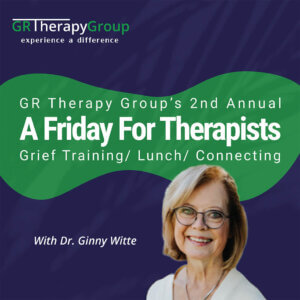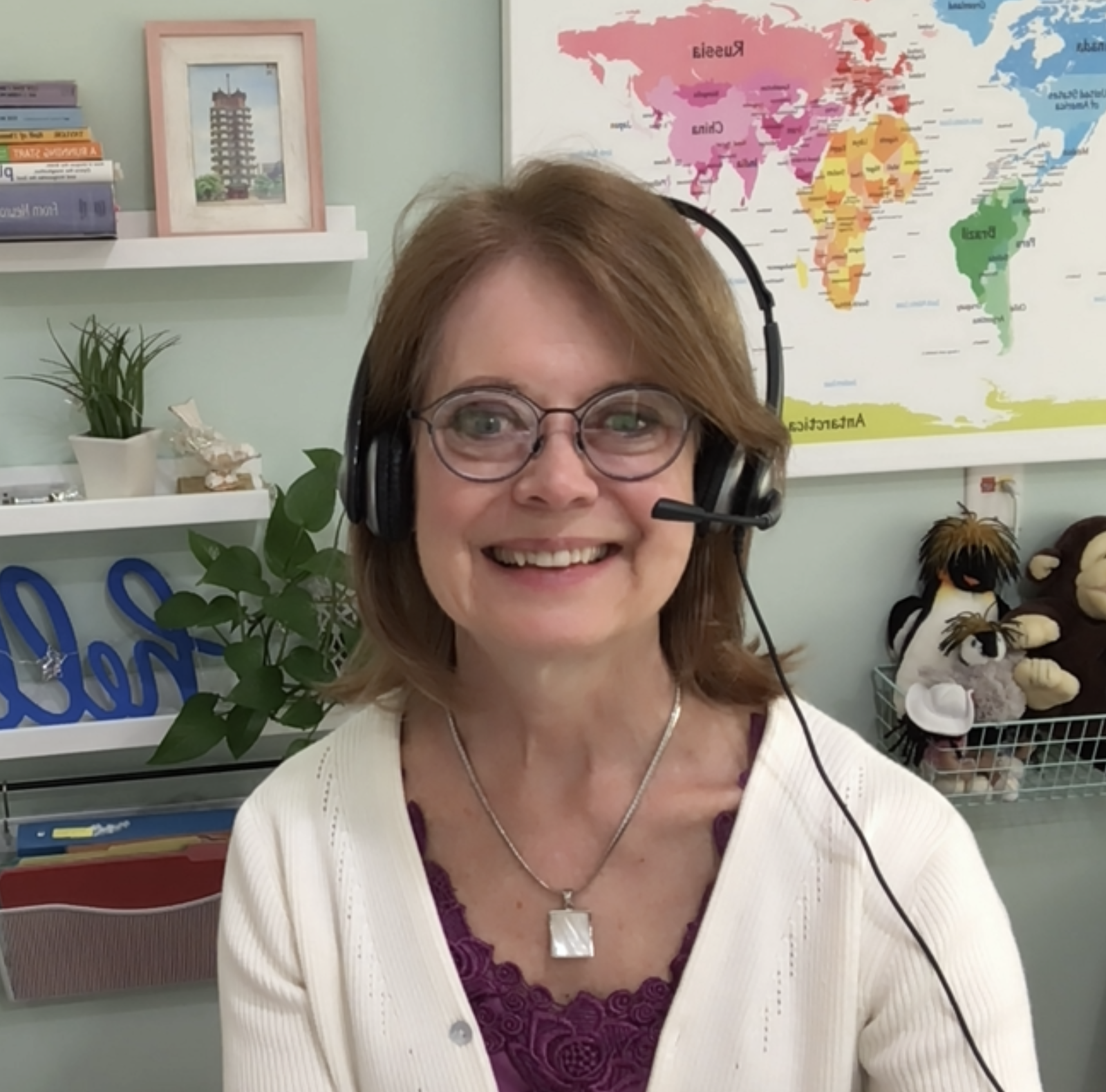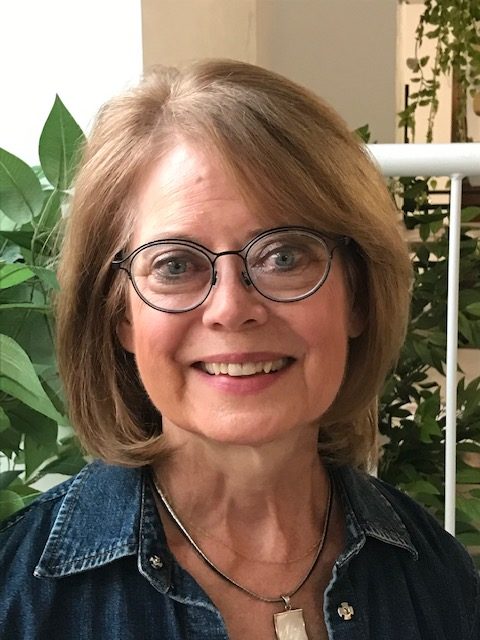
Ginny Witte, PhD
Helping You Understand Trauma, Healing, and Post Traumatic Growth
Services
A Day for Therapists
GR Therapy Group is hosting its second annual A Friday for Therapists. This event will include a 3-hour grief training with lunch and an opportunity for connection with fellow therapists. The grief training will be presented by Dr. Ginny Witte. This training will focus on the different types of grief experienced, effects of grief on the brain, nervous system, and our biology, and practices used to help individuals begin remapping their nervous system for healing. This training is approved for 3 continuing education credits.
Client Testimonials









Why Children Need To Regulate and How To Help Them!
This two-hour course will introduce you to the foundations of the Polyvagal Theory (Dr. Stephen Porges), the Social Engagement System, and tools we can use to regulate ourselves or others. The evolution, development, and function of the human social brain will be presented with application to clinical work, education, and personal understanding. The why and how of regulating our autonomic nervous system will be discussed in relation to social engagement, self-regulation, and co-regulation. You will leave with a better understanding of how the vagus nerve supports trust, social engagement, and improved relationships. Five simple regulatory tools you can use immediately yourself or with others will be presented.
The Social Engagement System and The Polyvagal Theory: How Our Physiology Shapes Our Behavior
This two-hour course will introduce you to the foundations of the Polyvagal Theory (Dr. Stephen Porges), the Social Engagement System, and tools we can use to regulate ourselves or others. The evolution, development, and function of the human social brain will be presented with application to clinical work, education, and personal understanding. The why and how of regulating our autonomic nervous system will be discussed in relation to social engagement, self-regulation, and co-regulation. You will leave with a better understanding of how the vagus nerve supports trust, social engagement, and improved relationships. Five simple regulatory tools you can use immediately yourself or with others will be presented.
Ginny Witte, PhD
My name is Ginny and I believe everyone should understand Trauma.
It is my mission to share what research tells us about what trauma is and how it affects daily life!
I believe every child can learn and that we all can live better, healthier lives by learning how trauma affects our brain, body, and emotions.
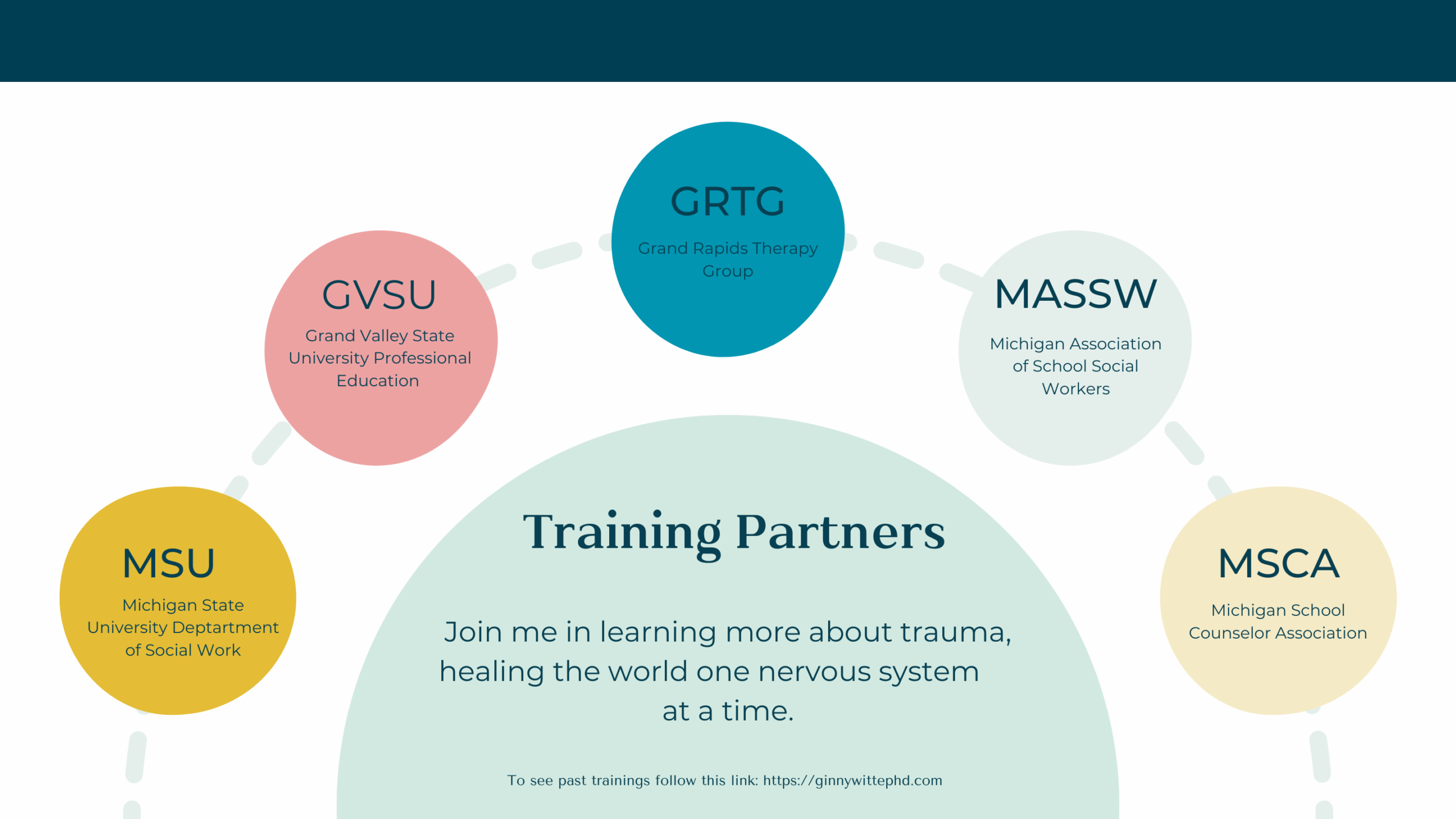



About Me
I am a lover of dance, a passionate gardener, a reading addict, a yoga practitioner, and a dog lover. I am a teacher, movement educator, speaker, and mother. Over the last three decades I have worked with a diverse group of students from preschool through the university level. I have a passion to help each and every student who crosses my path grow, learn, and live a healthy and wholesome life. And as an educator, I have a passion to help fellow educators understand what trauma is and how trauma interferes with learning. I integrate what research tells us in the fields of education, neuroscience, movement, and psychology to share research based strategies that help you build trauma informed classrooms. Research has also helped us develop strategies that can help students regulate and come into a place where they are ready to learn. Schools are a place of community, relationships, and support, and can provide a wonderful place to support students who have experienced trauma.
We have all experienced stresses that could become traumatic. Learning more about trauma can help you ride the waves of life and become stronger. Learning about trauma can also help you understand and support others as they experience the ups and downs of life.
Services
If you would like more information, a presentation for your group, private teaching for your student, or to be part of a trauma informed yoga class, contact me below.
If your school, church, or group would like to learn more about becoming trauma informed, you may contact me for a presentation or workshop.
I am a certified yoga instructor and certified in Trauma Informed Yoga. Yoga can help strengthen, balance, and support healing no matter your age! Check out my yoga page to learn more.
I love helping students learn and grow. I have a limited number of teaching hours available for private teaching and tutoring. I work to find the blocks in your student’s learning. We then work together to unlock the blocks, and develop skills that meet your goals.


How do we help these students?
We must change our mindset from a focus on testing and curriculum to the child. As teachers and parents we must ask ourselves if our students are ready to learn; mentally, emotionally, and physically. And if not, how do we help them become ready? This has been the focus of my graduate and professional work.
Are students ready to learn?
I have pondered this question many times in my mind and it is the first question I address with every student I work with. I have realized that we have worked hard to prepare teachers to teach. We have excellent teacher preparation programs and we have worked hard to create supportive and engaging classrooms. We have also developed effective curriculum. Yet we have spent little time looking at the child and asking the question, “What makes a child ready to learn?”
What we have learned is that trauma impedes learning. Early trauma affects development. Trauma in the moment, real or triggered, shuts down the areas of the brain necessary for learning, reasoning, and problem solving. Trauma further puts the body into a protective, or defensive state. What we need for learning is for students to be in a receptive state.
I would love to help you learn more about this receptive state of learning!


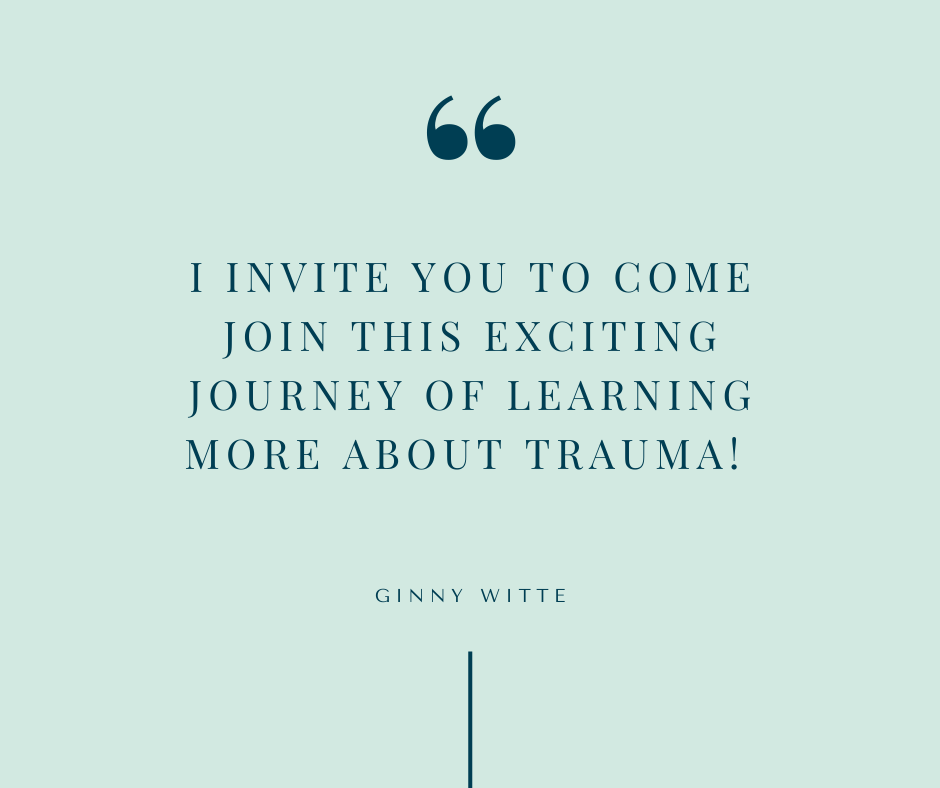

Recognizing Trauma
When a student lives with trauma, or when past trauma is triggered, it is very difficult to learn. It is hard to concentrate. It’s hard to think. Instead, the student will react. You may see angry outbursts, yet cannot figure out why the student is so angry. The student may shut down and not communicate. A student may appear anxious, hyperactive, or depressed. As trauma informed educators, we learn to see the behavior as a messenger trying to tell us what is happening inside the student. While the student’s behavior may not make sense in the current situation, when we look closer we see that their behavior makes perfect sense in light of their past experiences. Their body is doing just what is designed to do; to protect itself.
Creating a safe and supportive learning environment
When students are in a protective state, they are not learning. In a protective state students have a deep need for safety. The student may not hear the words the teacher speaks. As a result, the student may miss important directions, or necessary instruction for a learning task. Remembering directions or class rules, or what is supposed to be completed next can be impossible. Our job as adults is to recognize these differing states, create safe and supportive learning environments, and help students transition to a learning state. Once students transition to a learning state, they can engage their cognitive skills which give them the focus they need to engage in learning. The foundation of learning is being in the proper physiological state.
When we make small, but dramatic changes in our approach to teaching students, to the classroom environment, and teach the students self-care strategies, we can “be the change.” We can support students where they are, help them transition to a proper learning state, and open the doors to the exciting world of learning.
I can help you understand these physiological states and give you tools to help students transition to a balanced, regulated, learning state.


